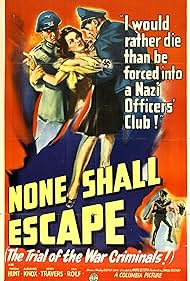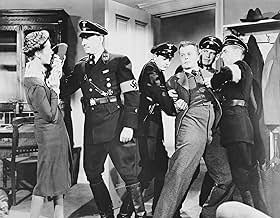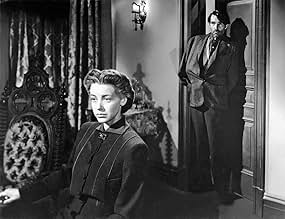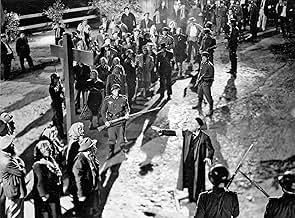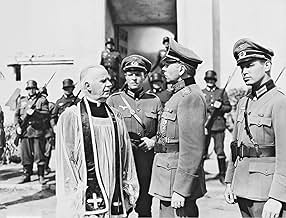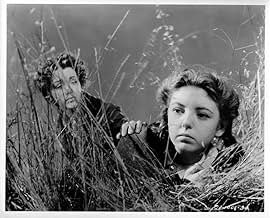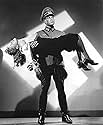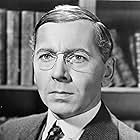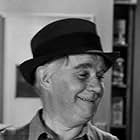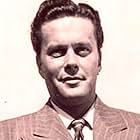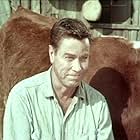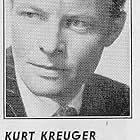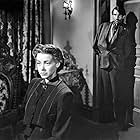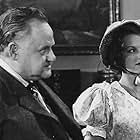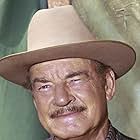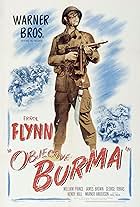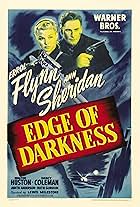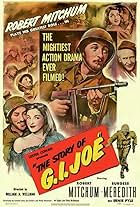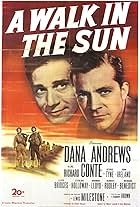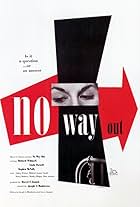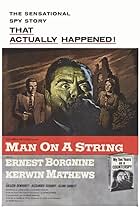The career of a German officer shown as flashbacks from his trial as a war criminal.The career of a German officer shown as flashbacks from his trial as a war criminal.The career of a German officer shown as flashbacks from his trial as a war criminal.
- Nominated for 1 Oscar
- 1 nomination total
Fred Aldrich
- Man at Ceremony
- (uncredited)
Felix Basch
- Nazi Official
- (uncredited)
- Director
- Writers
- All cast & crew
- Production, box office & more at IMDbPro
Storyline
Did you know
- TriviaDirector De Toth was doing only his second feature for Columbia with "None Shall Escape" and the studio wanted him to use Paul Lukas, who had recently enjoyed a great success in a similar role with "Watch on the Rhine." De Toth wanted a lesser-known star and campaigned for Alexander Knox, whom he had seen on Broadway in Chekhov's "Three Sisters." When Knox was hired and was told who was directing, he objected that De Toth was unknown and insisted on Lewis Milestone. Harry Cohn reportedly berated Knox for his selfishness and ingratitude. According to De Toth, he and Knox ended up as friends, and worked together on subsequent films.
- GoofsWilhelm Grimm initially appears in the uniform of the SS and then later appears in a Wehrmacht uniform. This is unlikely. It was more likely to be the other way around towards the end of the war when SS soldiers tried to hide their SS involvement by disguising themselves as ordinary solders.
- Crazy creditsOpening credits prologue: The time of this story is the future.
The war is over.
As we promised, the criminals of this war have been taken back to the scenes of their crimes for trial.
In fact, as our leaders promised--
NONE SHALL ESCAPE
- Alternate versionsThere is an Italian edition of this film on DVD, distributed by DNA srl, "IL PROCESSO DI NORIMBERGA (1946) + NESSUNO SFUGGIRÀ (1944)" (2 Films on a single DVD), re-edited with the contribution of film historian Riccardo Cusin. This version is also available for streaming on some platforms.
- ConnectionsFeatured in Red Hollywood (1996)
Featured review
This is a neat little B picture where World War II has already been one and Nuremberg
like trials are taking place. One such trial is that of SS officer Alexander Knox
and is told in flashback by several witnesses to his barbarism and cruelty.
Knox was a soldier in World War I and was wounded in the trenches and lost a leg. Before the war he lived in German occupied Poland as a school teacher and was not loved. Now that Poland has been reconstituted a nation Knox is even more unwelcome. So he makes his way to the new Weimar Republic in Germany and lives in Munich where another WW1 veteran is organizing a new Nazi party that excites Knox.
Even in this country many things can push someone into those kind of extreme political beliefs. Knox's individual story is never lost against the background of the historical events taking place. Knox is fascinating portrait of studied and carefully nurtured cruelty. As he rises in the party when war is declared and over in a manner of weeks in 1939 against Poland he makes sure he's assigned to that old village.
One thing that was most assuredly not true. The film notes the friendship of Catholic priest Henry Travers and Rabbi Richard Hale. The film deserves praise for recognizing what would later become the holocaust. But in pre WW2 Poland ain't no way Travers and Hale would be any kind of friends. The film was written by Lester Cole of the Hollywood 10 and it got an Oscar nomination for Best Original Screenplay. On that point Cole was truly fantasizing.
Others to note in the cast are Marsha Hunt as the village schoolteacher who was a teen back when Knox was the teacher, Richard Crane as Knox's nephew whom he tries to create a mirror image of himself, and Trevor Bardette the grown version of a kid who hated Knox when he was the schoolteacher.
Maybe without big name stars this film has managed better than most wartime films to still be relevant today. Very relevant when looking at today's current climate.
Knox was a soldier in World War I and was wounded in the trenches and lost a leg. Before the war he lived in German occupied Poland as a school teacher and was not loved. Now that Poland has been reconstituted a nation Knox is even more unwelcome. So he makes his way to the new Weimar Republic in Germany and lives in Munich where another WW1 veteran is organizing a new Nazi party that excites Knox.
Even in this country many things can push someone into those kind of extreme political beliefs. Knox's individual story is never lost against the background of the historical events taking place. Knox is fascinating portrait of studied and carefully nurtured cruelty. As he rises in the party when war is declared and over in a manner of weeks in 1939 against Poland he makes sure he's assigned to that old village.
One thing that was most assuredly not true. The film notes the friendship of Catholic priest Henry Travers and Rabbi Richard Hale. The film deserves praise for recognizing what would later become the holocaust. But in pre WW2 Poland ain't no way Travers and Hale would be any kind of friends. The film was written by Lester Cole of the Hollywood 10 and it got an Oscar nomination for Best Original Screenplay. On that point Cole was truly fantasizing.
Others to note in the cast are Marsha Hunt as the village schoolteacher who was a teen back when Knox was the teacher, Richard Crane as Knox's nephew whom he tries to create a mirror image of himself, and Trevor Bardette the grown version of a kid who hated Knox when he was the schoolteacher.
Maybe without big name stars this film has managed better than most wartime films to still be relevant today. Very relevant when looking at today's current climate.
- bkoganbing
- Sep 30, 2018
- Permalink
- How long is None Shall Escape?Powered by Alexa
Details
- Release date
- Country of origin
- Language
- Also known as
- After the Night
- Production company
- See more company credits at IMDbPro
- Runtime1 hour 25 minutes
- Color
- Aspect ratio
- 1.37 : 1
Contribute to this page
Suggest an edit or add missing content

